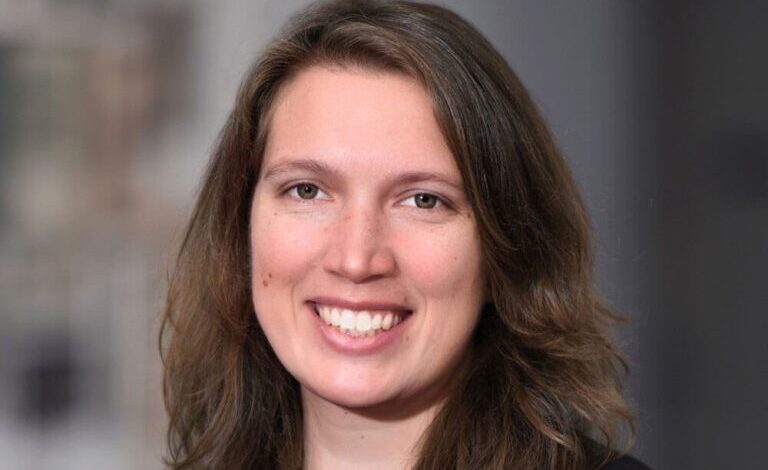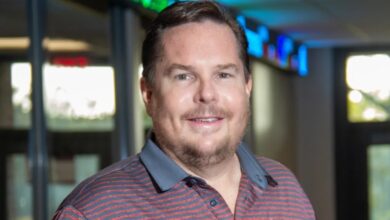Dr. Blair Benham-Pyle: A Trailblazer in Cell Biology, Cancer Research, and Regenerative Medicine

Dr. Blair Benham-Pyle is a distinguished cell biologist and cancer researcher whose work in aging and regeneration is making waves in the scientific community. Based at Baylor College of Medicine in Houston, Texas, Dr. Benham-Pyle is advancing our understanding of how multicellular organisms regenerate tissue and resist age-related diseases. Her journey—from her early academic achievements to becoming an innovative tenure-track professor—is a story of relentless dedication to unraveling the complex interplay between cells that leads to tissue renewal, cancer prevention, and longevity.
Introduction to Dr. Blair Benham-Pyle
Dr. Blair Benham-Pyle is currently an Assistant Professor at Baylor College of Medicine, where she holds a tenure-track position in the Department of Molecular and Cellular Biology. She is also a valued member of the Stem Cell and Regeneration Center (STaR Center). Her research investigates how cells communicate and cooperate within tissues to promote regeneration, prevent cancer, and delay the aging process.
Educational Foundation: Building Expertise at Premier Institutions
Yale University: The Starting Point of a Scientific Journey
Dr. Benham-Pyle earned her Bachelor’s and Master’s degrees in Molecular Biophysics and Biochemistry from Yale University. Graduating cum laude, she distinguished herself academically and developed a foundation in biophysical sciences that would later underpin her pioneering research. During her time at Yale, she was active in several extracurricular roles, including co-founding the Yale Bioethics Society and contributing to championship-winning volleyball teams, which demonstrated her early leadership and teamwork skills.
Henry Luce Foundation: The Luce Scholar Experience
Following her time at Yale, Dr. Benham-Pyle was awarded the prestigious Henry Luce Scholarship, which enabled her to spend a year as a visiting scholar at the Institute of Developmental Biology and Molecular Medicine in Shanghai, China. This experience broadened her global perspective on science and research, allowing her to engage with international experts and develop independent projects focused on metabolism and developmental biology.
Stanford University School of Medicine: Doctoral Studies in Cancer Biology
Dr. Benham-Pyle continued her academic journey by pursuing a PhD in Cancer Biology at Stanford University School of Medicine. Her doctoral research focused on cellular mechanotransduction—the process by which cells interpret mechanical signals from their environment—and how this influences gene expression. Supported by prestigious fellowships, including the NSF Graduate Research Fellowship and the Gerald J. Lieberman Fellowship, she has published key papers that have shaped the understanding of how physical forces regulate cellular behavior in tissue contexts.
Postdoctoral Training at the Stowers Institute for Medical Research
After completing her PhD, Dr. Benham-Pyle conducted postdoctoral research at the Stowers Institute for Medical Research, a world-renowned center for basic biomedical research. Here, she worked under the guidance of top scientists to investigate the mechanisms by which planarian flatworms regenerate their bodies. Her work identified crucial molecules and cell types that orchestrate regeneration and asexual reproduction in these highly regenerative organisms.
Research Focus and Scientific Contributions
Baylor College of Medicine: Leading Regeneration and Aging Research
Since 2022, Dr. Benham-Pyle has led her research group at Baylor College of Medicine. Her lab leverages cutting-edge genomics, molecular biology, and advanced fluorescence microscopy to study how different cell types coordinate during tissue repair and regeneration. The model organism at the heart of her research is Schmidtea mediterranea, a planarian flatworm known for its exceptional ability to regenerate entire body parts and resist aging-related decline.
Her team’s groundbreaking discovery of “Transient Regeneration-Activated Cell States” (TRACS) revealed that differentiated cells can temporarily revert to a state similar to that of stem cells in response to injury, thereby coordinating the regeneration process in collaboration with stem cells. This finding challenges the traditional view that stem cells alone drive tissue repair, highlighting the importance of dynamic cell-cell interactions.
Pioneering Work on Mechanotransduction and Cancer Biology
Dr. Benham-Pyle’s early work at Stanford established her as a pioneer in understanding how mechanical signals influence cell behavior and the development of cancer. She demonstrated that physical forces transmitted through cell adhesions can control gene transcription, impacting cell fate decisions and tissue homeostasis.
Her expertise in molecular biophysics and chemical characterization has enabled her to unravel complex cellular processes, bridging the gap between biophysical mechanisms and biological outcomes in regeneration and cancer prevention.
Honors and Awards: Recognizing Excellence
The scientific community has widely recognized Dr. Blair Benham-Pyle’s contributions. Some of her most notable honors include:
- NIH New Innovator Award (2024): This prestigious grant supports early-career investigators with bold, innovative projects that are expected to have a significant impact on biomedical research.
- Cancer Prevention Research Institute of Texas (CPRIT) Scholar (2022): CPRIT funding supports Dr. Benham-Pyle’s efforts to advance cancer research and the development of cancer therapies.
- ASCB Merton Bernfield Memorial Award (2021): Awarded by the American Society for Cell Biology, this honor recognizes outstanding graduate or postdoctoral research.
- Jane Coffin Childs Postdoctoral Fellowship: Supporting promising postdoctoral scientists to conduct impactful biomedical research.
- NSF Graduate Research Fellowship: Early-career support from the National Science Foundation for exceptional graduate students.
- Gerald J. Lieberman Fellowship: Awarded by Stanford University for exemplary graduate student research.
- Beckman Scholarship: Support during undergraduate research, emphasizing innovative scientific exploration.
These accolades reflect her outstanding achievements and potential to continue influencing regenerative biology and cancer research.
Experience and Leadership Roles
Dr. Benham-Pyle has combined scientific research with leadership and mentorship roles throughout her career. At Stanford, she served as President of the Stanford Biosciences Student Association, advocating for graduate student interests and fostering community engagement. She also held several leadership positions as a Community Associate, overseeing events and programs to enhance graduate student life.
During her postdoctoral years at the Stowers Institute, she was Chair of the Crossroads Committee, facilitating collaboration and professional development among scientists. Now at Baylor College of Medicine, she continues to mentor young scientists, nurturing the next generation of researchers in her lab.
The Significance of Planarian Flatworms in Her Research
Planarian flatworms are remarkable for their capacity to regenerate any lost body part and their resistance to aging and cancer. By studying these organisms, Dr. Benham-Pyle aims to uncover fundamental principles of tissue renewal that can be translated into therapeutic strategies for humans. Her work with Schmidtea mediterranea not only advances basic biological understanding but also holds promise for treatments that promote regeneration and prevent age-related diseases.
Also Read: Ahmed Alomari A Visionary Leader in Technology and Business Performance
Conclusion: The Future of Regeneration and Cancer Research with Dr. Blair Benham-Pyle
Dr. Blair Benham-Pyle stands at the forefront of regenerative medicine and cancer biology. Her innovative approach—integrating biophysics, molecular biology, and cutting-edge imaging—has unveiled new insights into how cells communicate and cooperate during tissue repair. With her leadership at Baylor College of Medicine and her remarkable academic and research background, Dr. Benham-Pyle is poised to make lasting contributions that could revolutionize treatments for aging and cancer.
Her passion for mentoring and connecting science with broader societal issues further highlights her commitment to shaping a better future, both in the laboratory and beyond.



